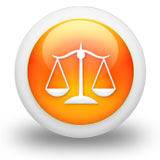We need your consent to use the individual data so that you can see information about your interests, among other things. Click "OK" to give your consent.
ASTM D5891-02(2009)
Standard Test Method for Fluid Loss of Clay Component of Geosynthetic Clay Liners
STANDARD published on 15.6.2009
The information about the standard:
Designation standards: ASTM D5891-02(2009)
Note: WITHDRAWN
Publication date standards: 15.6.2009
SKU: NS-32972
The number of pages: 3
Approximate weight : 9 g (0.02 lbs)
Country: American technical standard
Category: Technical standards ASTM
The category - similar standards:
Annotation of standard text ASTM D5891-02(2009) :
Keywords:
Geosynthetic clay liner (GCL), Geosynthetics, Ground water, Hydraulic conductivity reduction, Hydraulic conductivity/transmissivity, Industrial wastewater applications, Permeability--geosynthetics, Wastewater testing/treatment, ICS Number Code 59.080.70 (Geotextiles)
Additional information
| Significance and Use | ||||||||||
|
Clay mineral is the functional component of GCL that reduces the hydraulic conductivity of industrial waste or ground water through the liner. Clay mineral quality can vary significantly and effect the hydraulic conductivity of the GCL composite. This test method evaluates a significant property of clay mineral that relates to performance. |
||||||||||
| 1. Scope | ||||||||||
|
1.1 This test method covers an index method that enables the evaluation of fluid loss properties of a clay mineral film deposited on a filter paper from a 6 % solids slurry of clay mineral at 100-psi (-kPa) pressure as a measure of its usefulness for permeability or hydraulic conductivity reduction in geosynthetic clay liners (GCL). 1.2 This test method is adapted from American Petroleum Institute drilling fluid specifications for bentonite. 1.3 Powdered clay mineral is tested as produced; granular clay mineral should be ground to 100 % passing a 100 mesh U.S. Standard Sieve with a minimum of 65 % passing a 200 mesh U.S. Standard Sieve with the whole ground product used for testing. 1.4 The values stated in SI units are to be regarded as the standard. The values given in parentheses are for information only. 1.5 This standard does not purport to address all of the safety concerns, if any, associated with its use. It is the responsibility of the user of this standard to establish appropriate safety and health practices and determine the applicability of regulatory limitations prior to use. |
||||||||||
| 2. Referenced Documents | ||||||||||
|
We recommend:
Updating of laws
Do you want to be sure about the validity of used regulations?
We offer you a solution so that you could use valid and updated legislative regulations.
Would you like to get more information? Look at this page.




 Cookies
Cookies
